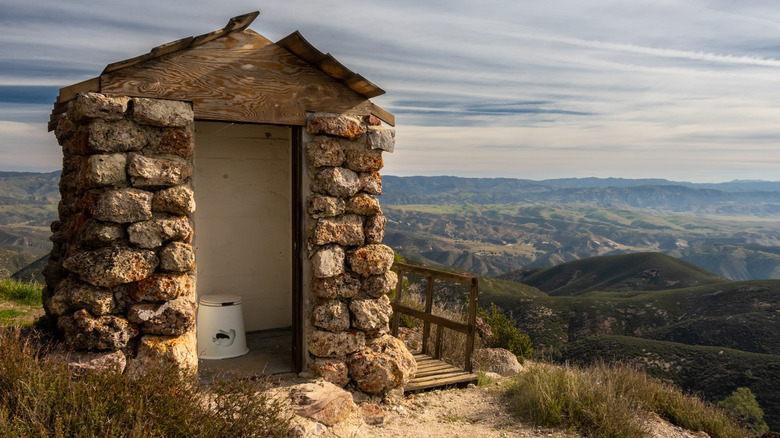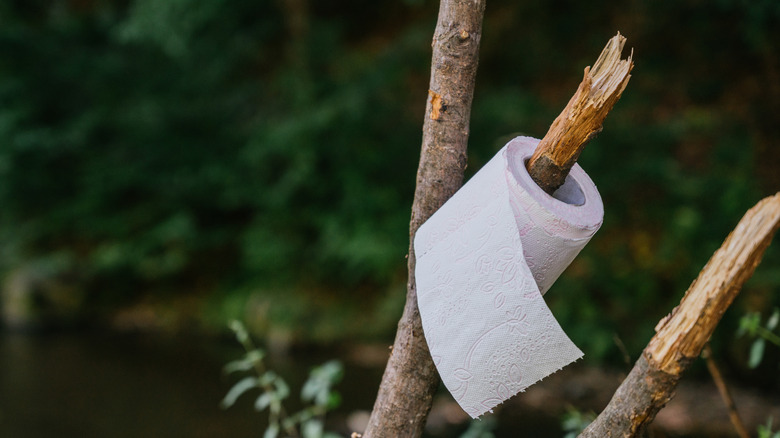Travel Guides Outdoor Adventures Camping
Matt Berry
Do backpackers poop in the woods? Yup! So, let’s broach this topic like adults. We’ve all read “Everyone Poops,” and the thesis of the book is that everyone does, indeed, poop. This doesn’t change when you’re camping or hiking. In fact, if you’re staying hydrated, well-nourished, and active while camping and hiking, then you’re pooping game should be solid and on time. With all this said, there can be a bit of a reality disconnect for novice hikers and campers. Sometimes, in the throes of packing and preparation, you may forget one pretty essential item — toilet paper.
Forgetfulness aside, there are also assumptions when it comes to available amenities at a state or national park. If you’re hiking the backcountry, then you’re probably (hopefully) prepared, but some assume that bathrooms near state-run trailheads or at campgrounds will be supplied with an infinite roll of toilet paper. Not true, so prepare accordingly.
When you gotta go, you gotta go

Kellyvandellen/Getty Images
While park employees try their best to service the amenities near trailheads and at campgrounds, you’ll always want to roll up to a camping or hiking situation with a roll or two of your own. Toilet paper in bathrooms at popular trailheads and campgrounds found at state and national parks can run notoriously thin, as maintenance crews can only do so much with the influx of crowds. And you’d be surprised how often the unprepared ask other hikers or campers to “spare one square.”
Camping and hiking amenities are one thing, but taking toilet paper with you in the backcountry is another. According to the National Park Service, there are seven principles to “leave no trace.” The third principle is to dispose of waste properly, and yes, this includes your organic waste.
When you poo, do so in a cathole that’s between 6-8 inches deep and at least 200 feet from a campsite, a trail, and any water. After your business, fill, cover, and disguise the cathole. According to REI, there are some particularly popular places where you should pack out your waste, including Muir Base Camp on Mount Rainier, and some campsites at the Grand Canyon. If you can imagine the detriment that frozen human waste has had on Mount Everest over the years, you get the picture.
Opt for biodegradable bath tissue

Now that you’ve remembered to bring TP and understand that there’s a principled way to deal with it, the next part is to acknowledge that not all TP is created equal. All toilet paper is biodegradable, as it’s made of pulp. However, there is a stark difference between typical toilet paper — which will eventually biodegrade — and toilet paper that’s marketed as biodegradable.
According to EcoFreek, biodegradable toilet paper typically breaks down 4x quicker than regular toilet paper. As you can imagine, soiled toilet paper that breaks down quicker is more septic-safe in the backcountry. You can do your research, but many camping/outdoorsy companies, such as Coleman, make camping-specific toilet paper.
So, to respect both the environment and others, we’d recommend spending the extra penny for some biodegradable toilet paper. Remember, everyone poops, and toilet paper will make this truth a lot more comfortable when in the backcountry. But in a mix of naturalism and tact, try not to leave a trace.

